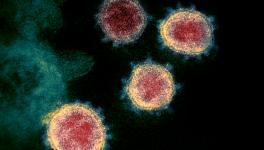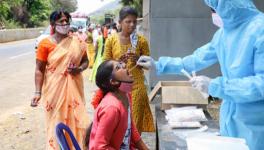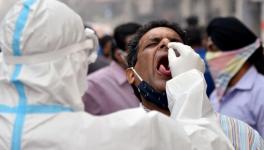Can Novel Coronavirus Really Spread During Incubation Period?
The global panic regarding the novel coronavirus epidemic that started initially in China and now has spread to several countries, has also got the scientific community busy in finding out details about the virus. One of the experiments conducted by the scientists earlier had led to the conclusion that the coronavirus has the capacity to spread from one person to other even in its incubation period—the time after the virus enters a human body until the symptoms are visible. This asymptomatic spread of the virus was reported in a paper published in The New England Journal of Medicine (NEJM) on January 30.
But now it appears that this information was false. The Robert Koch Institute (RKI), the German Government’s public health agency, has written a letter to NEJM regarding this.
The January paper of NEJM which reported the asymptomatic contraction was based on a cluster of infections that came to notice after a Shanghai woman visited Munich, Germany to hold meeting with her business partners. It was between January 20 and 21. The first of the four people in Germany that the Shanghai businesswoman met fell ill shortly afterwards. The NEJM paper reported that the Shanghai woman did not show symptoms of sickness during the meeting. The authors of the paper wrote—“During her stay, she had been well with no sign or symptoms of infection but had become ill on her flight back to China. The fact that asymptomatic persons are potential sources of 2019-nCoV infection may warrant a reassessment of transmission dynamics of the current outbreak.”
When RKI and the Health and Food Safety Authority of the state of Bavaria personnel called that woman over phone, she informed them that she had had symptoms while in Germany. According to the people familiar with the call, she felt tired, suffered from muscle pain, and took paracetamol, a fever-lowering medication—reports Science.
It has also been reported that RKI has told WHO and European partner agencies about the new information.
Christian Drosten of the Charité University Hospital in Berlin, one who was involved in the lab work of the study, was quoted to have said, “I feel bad about how this went, but I don’t think anybody is at fault here. Apparently, the woman could not be reached at first and people felt this had to be communicated quickly.”
“Calling a case asymptomatic without talking to the person is problematic. In retrospect, it sounds like this was a poor choice. However, In an emergency setting, it’s often not possible to talk to all the people. I’m assuming that this was an overstretched group trying to get out their best idea of what the truth was quickly rather than somebody trying to be careless”—opined Marc Lipsitch, an epidemiologist, Harvard T.H Chan School of Public Health.
Even it seems that the NEJM paper got it wrong, there still remains a section who believes that asymptomatic contraction is possible and it happens with 2019-nCoV. Anthony Fauci, director of the U.S. National Institute of Allergy and Infectious Diseases has his opinion along this line. “This evening, I telephoned one of my colleagues in China who is a highly respected infectious diseases scientist and health official. He said that he is convinced that there is asymptomatic infection and that some asymptomatic people are transmitting the infection.”
However, WHO has said that even if asymptomatic transmission happens, it plays a very minor role in the overall epidemic scenario.
But what is most interesting about the German cluster of infections is that the symptoms after the novel coronavirus attack are very mild in nature. All the four cases in Germany had very mild infection, which may be a case for many more patients. It actually helps spreading the virus. Christian Drosten explains how in his words—“There is increasingly the sense that patients may just experience mild cold symptoms, while already shedding the virus. Those are not symptoms that lead people to stay at home.”
Get the latest reports & analysis with people's perspective on Protests, movements & deep analytical videos, discussions of the current affairs in your Telegram app. Subscribe to NewsClick's Telegram channel & get Real-Time updates on stories, as they get published on our website.
























